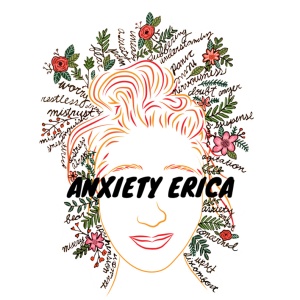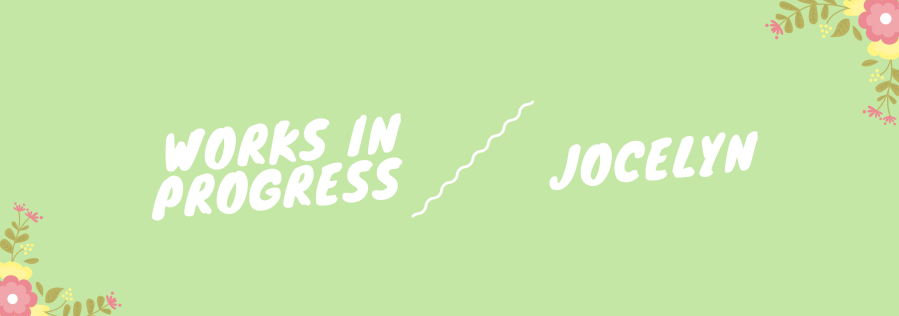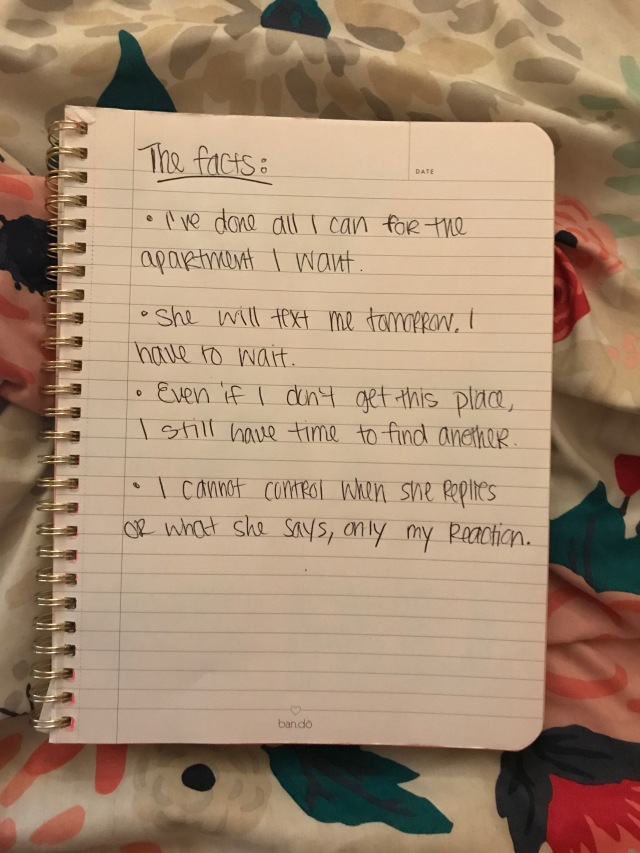The past few months have been pretty stressful with work, and – I’ll be real – I haven’t felt motivated or inspired to write anything. I’ve been attempting to put my phone down and keep a few things to myself. When I get out of therapy sessions, I’m starting to allow myself to process information without external validation. Just me, myself, and I.
To be honest, it’s scary. To just rely on myself to fully understand, embrace, and trust I’m learning (or unlearning) something the healthy way. It’s scary because it’s not familiar for me, to trust myself fully before others.
As we head closer and closer (just one day, actually) into the new year, I’ve been thinking what 2018 has taught me and one of the major lessons has been learning to “leave it.”
About six months ago, my therapist gave me a book called Codependent No More by Melody Beattie and while it took me some time to actually crack it open, the pages have been beyond eye-opening for me.
Every chapter is heavy, raw and it’s almost like it’s coming out of the page and pointing directly at me saying: this is for you, Erica. At the end of each section, there are a few workbook questions based on what you’ve just read, and I make sure to write them out in my journal. It not only makes for a good journaling exercise, but I go over what I write in my monthly therapy sessions.
The most recent chapter I read was called, “Don’t Be Blown About By Every Wind,” and let me tell ya, this one hit me hard. The section goes into detail about reactionaries, aka people who go through life reacting to other people’s lives, desires, problems, personalities, successes, and failures. I’m Erica and I’m a reactionary. The first step is accepting it, right?
I resonated with this chapter so much, that I wanted to share a few things, both in the book and through therapy, about how I’ve learned to “leave it.”
You do NOT have to react 24/7.
Whether it’s a little thing like getting lost with directions in the car with my mom or having an intense argument with my sister, you can always catch me reacting. Doesn’t matter the emotional size of the moment, it could have the power to throw me completely off track.
Through reading Codependent No More, I realized that I keep myself in this “crisis state,” which means I always have muscles tensed, and I’m ready to react to something as if it’s an emergency, when it usually isn’t.
Here’s a section from the chapter that truly defines being caged into this crisis state:
“Someone does something, so we must do something back. Someone says something, so we must say something back. Someone feels a certain way, so we must feel a certain way. We jump into the first feeling that comes our way and then wallow in it.”
Believe it or not, are you ready for this (it’s crazy, prepare yourself) you actually don’t have to respond or react when someone is reacting. Sound trivial to you? Well, it’s something I haven’t known most of my life. I’ve been operating on the notion that I have to react, I have to make them understand, I have to raise my voice because I never had one before. Turns out, we can choose when to speak up. We can protect our voices, and we can make decisions on how to react and when, for our own health.
Time to stop taking things so seriously.
Blowing things out of proportion is my anxiety’s favorite past-time. Nothing like a good feelings fest to start a morning, or ruin the end of a day.
While I can blow things out of proportion, I find I do the same thing when it comes to other people’s feelings, thoughts, and actions. I could be having a wonderful day, and then BOOM, a phone call from my mother and her feelings and actions have suddenly morphed my great attitude into a horrible one.
The book says it best:
“Feelings are important, but they’re only feelings. Thoughts are important, but they’re only thoughts–and we all think a lot of different things, and our thoughts are subject to change. What we say and do is important, what others say and do is important, but the world doesn’t hinge on any particular speech or action. And if it is particularly important that something gets done or said, don’t worry: it’ll happen…Give yourself and others room to move, talk, to be who they are–to be human.”
The last few sentences of this quote are something I still struggle with. Giving myself room to process. When there is conflict, I have this ingrained need to immediately fix it, an urgency to clear the air. Only in the last few months have I been unlearning that motivation. I do not have to run towards ending the argument if I need time to think about how I will react. It’s okay to give myself and others time to pause and reflect.
Detachment isn’t a negative word.
When people normally hear the word detach, they associate it with a negative context. That someone is ignoring you, or being dismissive of your feelings. However, detaching can be something that is needed for ourselves and our mental health.
“Detaching does not mean we don’t care. It means we learn to love, care, and be involved without going crazy. We stop creating all this chaos in our minds and environments. When we are not anxiously and compulsively thrashing about, we become able to make good decisions about how to love people, and how to solve our problems. We become free to care and to love in ways that help others and don’t hurt ourselves.”
Detaching ourselves means we stop worrying obsessively about the outcome of other people’s lives and start focusing on our own.
This also applies to the notion of taking things personally. If someone you love is having a crappy day or gets angry, it’s a knee jerk reaction to assume it’s something we’ve done. But as this book wisely states, “Usually things have far less to do with us than we think.”
This is why it’s healthy to separate ourselves from things. Practicing detachment decreases our destructive reactionary tendencies.
“Leave things alone, and let people be who they are.” Going into 2019, this will be one of my guiding mantras. It’s incredibly difficult for me, but that’s why I know it’s worth it to try and embrace each day.
My own therapist and I have dedicated whole sessions to this idea, since it’s something I struggle with owning in myself. She’s said to me:
“You don’t need people to ‘see.’ You can pause and reflect. Wisdom comes with patience. Stop and consider, what do I want to say?”
We are always so busy reacting we don’t give ourselves the time, energy or opportunity to face the real problems or figure out a game plan on how to solve it.
2018 has been a year of consistent challenges. Directly facing toxic patterns I’ve created for myself, doing the work on breaking them, and pausing to find out why they were there to being with.
It’s been a year where I’ve truly learned what it means to take care of myself, for myself. And it’s one where – only in the last few months – I’ve learned that it’s okay to choose the path of detachment. It’s not my job to show the people around me how they’ve hurt me, or why they need to change or grow in a certain way. It’s theirs. The more time I focus on making other people “see,” the less time I have to direct my attention where it should be: at me. Looking at myself and how I can change my reactions towards others.
At first I pushed back so hard at this notion because I always thought it was “unfair” that I had to do all the work, and change myself. Why can’t they just see they need to change? I never realized that changing my reaction is for me, not them. It’s to put less of a burden on myself and my feelings. It’s to show myself what is worth reacting over and what isn’t.
I’ll leave you all with this quote from the end of the chapter I just read:
“You are not responsible for making other people “see the light,” and you do not need to “set them straight.” You are responsible for helping yourself see the light and for setting yourself straight. If you can’t get peaceful about a decision, let it go. It’s not time to make it yet.
This is the year of cancelling the reactions that hurt us, and recognizing that not everything is worth spending our time and energy on. Dedicate it to your own growth.
Do you have issues with not being able to “leave it” or need people to “see the light”? Share your story in the comments below!





















